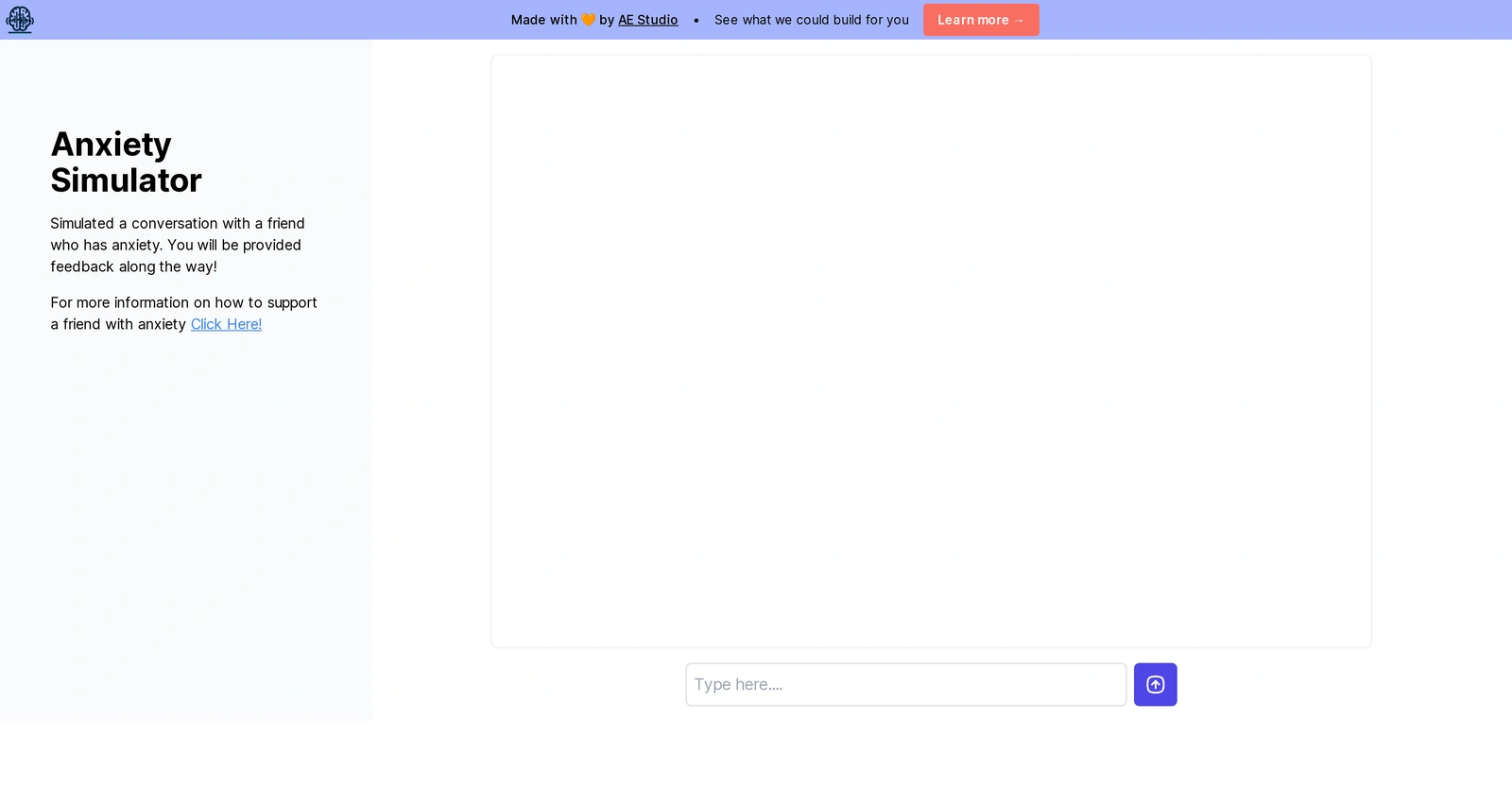Anxiety Simulator is an application tool designed to simulate a conversation with a person suffering from an anxiety disorder. This innovative tool aims to promote awareness and assist individuals in understanding the intricacies of anxiety, as well as how it influences communication and interpersonal interactions. The primary function of Anxiety Simulator is to present an interactive conversational demonstration with a virtual person manifesting symptoms of anxiety. To enhance the learning experience, constructive feedback is provided throughout the conversation simulation, offering valuable insights and guidelines on effective communication practices with individuals experiencing anxiety, both in a casual and supportive context. While using this tool, users are given the opportunity to develop empathetic communication skills and strategies for supporting friends or acquaintances coping with anxiety disorders. Although this tool should not replace professional mental health advice, it can be instrumental in cultivating a greater understanding of anxiety and reinforcing supportive relationships.

Description
Get to know the latest in AI
Join 2300+ other AI enthusiasts, developers and founders.
Thank you!
You have successfully joined our subscriber list.
Add Review
Pros
Allows supportive strategies development
Assists personal development
Constructive feedback provided
Cultivates understanding of anxiety
Develops empathetic communication skills
Effective communication practices
Enhanced learning experience
Guidelines on effective communication
Interactive conversational demonstration
Not a replacement for professional advice
Promotes mental health awareness
Reinforces supportive relationships
Simulates anxiety symptoms
Support tools for anxiety disorders
Supportive context learning
Virtual reality simulation
Assists personal development
Constructive feedback provided
Cultivates understanding of anxiety
Develops empathetic communication skills
Effective communication practices
Enhanced learning experience
Guidelines on effective communication
Interactive conversational demonstration
Not a replacement for professional advice
Promotes mental health awareness
Reinforces supportive relationships
Simulates anxiety symptoms
Support tools for anxiety disorders
Supportive context learning
Virtual reality simulation
Cons
Can’t replace actual therapy
Imperfect simulation of anxiety
Limited personalization options
Limited to anxiety disorder
May oversimplify complex situations
No multilingual support
No offline usage
No professional psychological input
Restricted to text interaction
Risk of stereotyping disorders
Imperfect simulation of anxiety
Limited personalization options
Limited to anxiety disorder
May oversimplify complex situations
No multilingual support
No offline usage
No professional psychological input
Restricted to text interaction
Risk of stereotyping disorders
Alternatives
Promote Your AI Tool
Get seen by thousands of AI enthusiasts, founders & developers.
- Homepage, Search and Sidebar Ads
- Featured Placements
- Click Stats & more
AI News








Leave a Reply